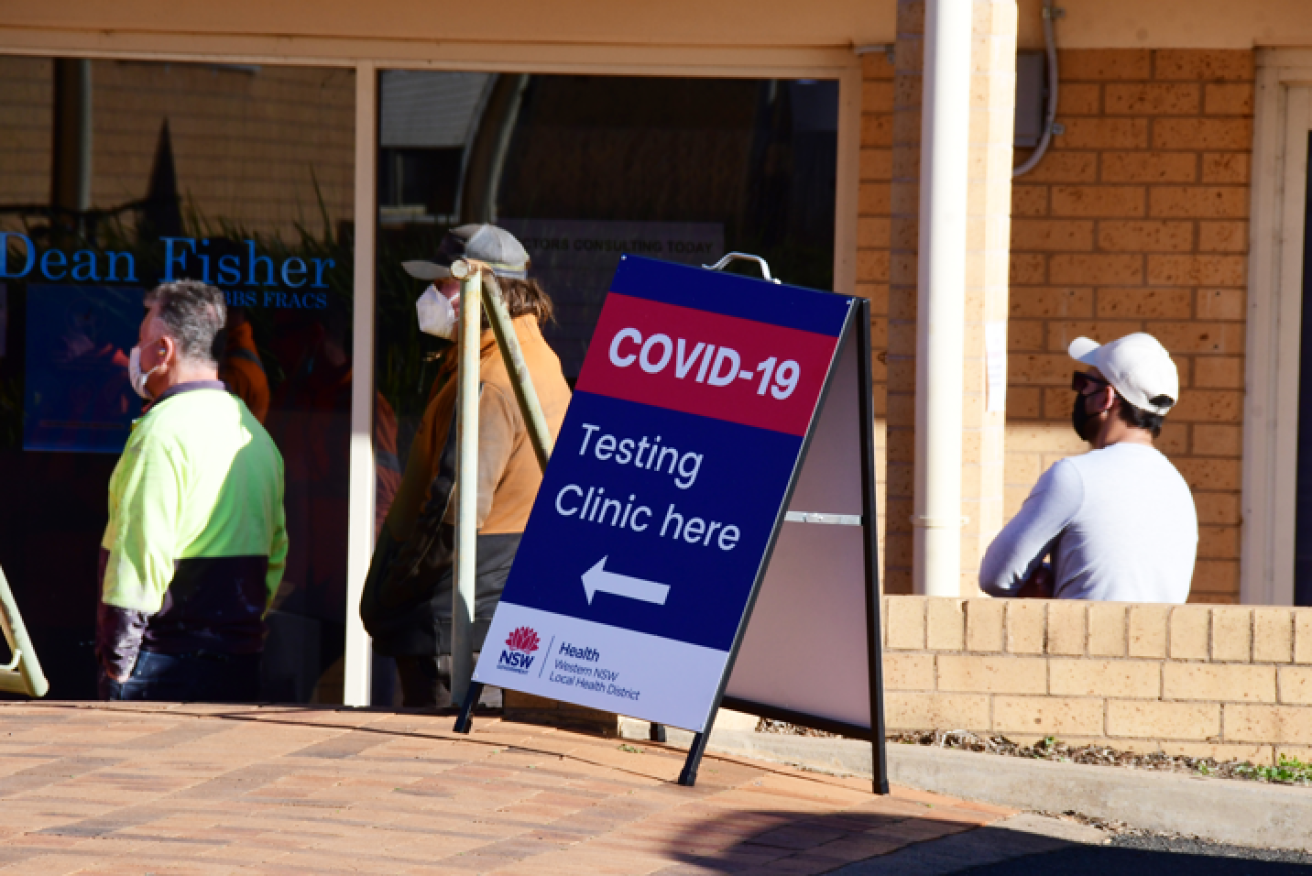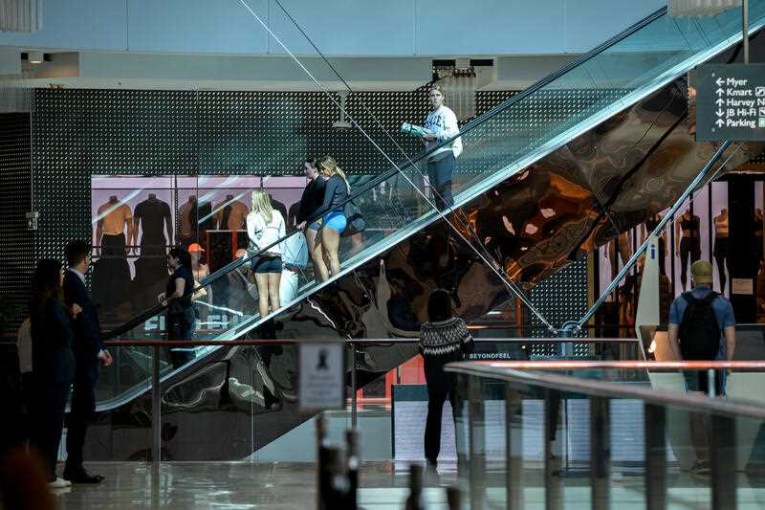NSW changes tactics in fight against COVID spread


NSW Health are no longer listing all metropolitan exposure sites. Photo: Getty
NSW health authorities have stopped listing many of the growing number of virus exposure sites across Sydney, opting instead to focus on settings with the “highest risk”.
Residents who have regularly checked NSW Health’s website for locations linked to COVID cases will no longer find that information available for metropolitan areas.
NSW Health’s Jeremy McAnulty said on Tuesday that updating the exhaustive list of exposure venues in Sydney had not been a priority for several days.
He said attention was instead focused on tracing household contacts, as it was more likely the virus would spread in homes and workplaces than in supermarkets or shopping centres.
“We’ve learned that people get lost in the detail when we put up venues that we don’t think are risky places on the website or in the media,” Dr McAnulty said.
He said in terms of catching the virus “the highest risk is your household”, based on figures showing who has caught the Delta variant.
“The next most concerning place for transmission is a workplace,” he said.
“We’re really trying to focus the public’s attention on those where we believe there’s a true risk.”
The total number of cases in NSW’s Delta outbreak rose to 8654 on Tuesday, with 452 more local infections.
They include 447 people in hospital – a rise of nearly 50 on Monday. Of those, 69 in ICU and 24 on ventilators.
There have been 57 virus-related deaths. They include the latest, a woman in her 70s from western Sydney who died at Westmead Hospital.
‘Enormous concern’ for regions
Venues in regional areas will still be listed on the website, as the virus continues to creep through western NSW.
- You can find an updated list for regional NSW here
The Delta variant has been detected in the outback town of Broken Hill, with 18 new cases in the region sparking concern for the high Indigenous population.
Mr McAnulty said on Tuesday there were 116 cases in western NSW, with 16 new cases in Dubbo and two in Bourke.
The first person diagnosed in Broken Hill has been infectious since Friday and had been mingling there and in Wilcannia until their diagnosis on Monday.
It is not yet known how transmission occurred and identified contacts are being tested.
Premier Gladys Berejiklian said western NSW “remains of enormous concern” to health authorities.
Of the 452 new cases in NSW on Tuesday, 10 are from Hunter New England (five in Maitland, two in Newcastle, three in Lake Macquarie), one is from the Central Coast, one is from Illawarra Shoalhaven and seven cases are yet to be assigned.
There were 130 cases in the Hunter New England district.
Deputy Premier John Barilaro said resources were focused on vaccinating “the vulnerable community in western NSW”.
“Don’t get caught up in the AstraZeneca versus Pfizer debate,” Mr Barilaro said.
“I don’t want to see a future where regional communities are behind the target set by the government because of a lacklustre approach to getting vaccinated.”
On Tuesday, there were 107 confirmed cases of the virus in Dubbo, two in Bourke, three in Mudgee and four in Walgett.
Dr McNulty said most of these were in the Indigenous community.
“We’re working closely with the Aboriginal community to keep them safe, to make sure that people are getting tested and making sure that people who have been in contact with other cases are aware that they need to isolate,” he said.
NSW Health was also investigating whether a funeral in south-west Sydney led to any cases in Wilcannia, in the state’s north-west.
Defence force on the way
Twenty-five ADF personnel are due to arrive in Dubbo on Tuesday to help administer vaccines, assist with COVID testing and enforce stay-at-home orders.
Two schools in Dubbo remain closed while staff and students have been asked to get tested for the virus and isolate for a fortnight while non-urgent elective surgery has been postponed in the region.
Meanwhile, NSW Health’s sewage surveillance program has detected fragments of the virus at the Lennox Head sewage treatment plant that services about 7700 people on the north coast.
Dr McNulty said the detection was of particular concern, as there were no recent known cases of COVID-19 in the area.
Stay-at-home or cop fines
As for those breaking the rules, NSW Police Deputy Commissioner Gary Worboys said 579 fines had been issued and 2300 houses had been door-knocked in 24 hours.
Operation Stay-At-Home is an effort to crackdown on non-compliance across the locked down state.
“The message, if it’s not already there, people must really start to understand and take heed that if you’re going to breach public health orders anywhere in this state, you will be caught,” Deputy Commissioner Worboys said.
“The time is over in terms of warnings and cautions.”
-with AAP








